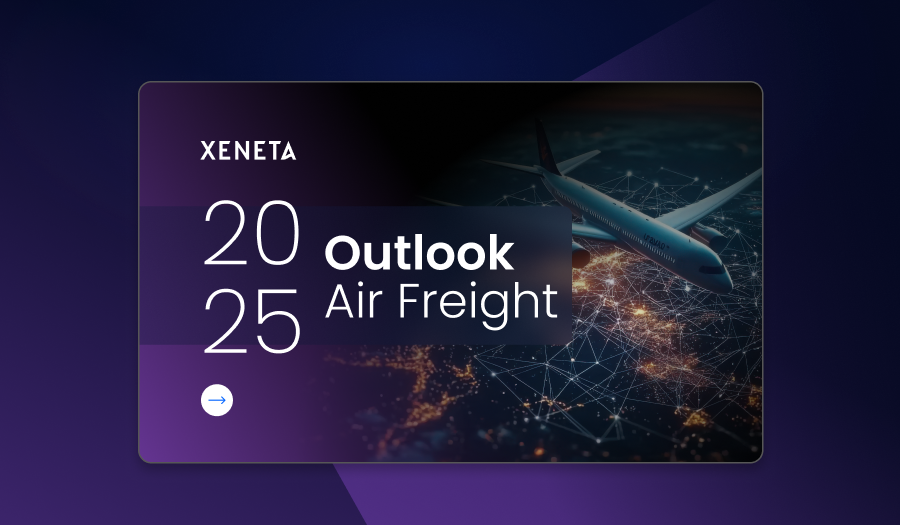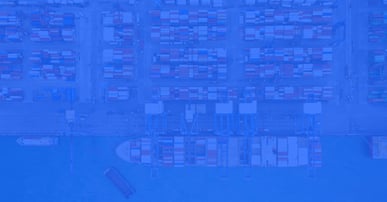
As much as I despise, as of late, the use of the term “Big Data” (mainly because it is overused and because “then there must be such a thing as ‘small data’, right? Is there?”), it is indeed one of those BS bingo words everyone is touting in the freight world, even I have written a lot about it in the past. All in all, it is about applying technology or modernizing the way business is done in the industry with the use of technological advances.
Unfortunately, the freight industry has not fully started using or benefiting from digitalization as compared to other industries.
The industry is slowly, but surely realizing that the new technological wave does not mean the end of a traditional logistics services and must understand and adapt to the many technologies that have been specifically developed for the freight industry.
Technology and data-driven services such as freight benchmarking allow, for example, a BCOs and suppliers identify changes in the market and adapt to those changes quickly in order to meet the increasing demand from the market.
Such adaptability to technological advances allows these companies to differentiate themselves from the crowd and be competitive against their peers.
Technologies adapted in the freight industry are designed to allow shippers and logistics service providers alike to plan, procure, arrange, facilitate and move freight shipments reliably and competitively.
These technologies are designed to create maximum visibility of the shipment to the customer and also provide transparency in their freight dealings and help them understand the complexity of the transportation and logistics world. For example, in ocean shipping alone, the abbreviations of a rate sheet are mind boggling. There are many secrets in ocean freight quotations.
Visibility in ocean freight shipment transgresses from when the customer (whether shipper, consignee or forwarder) is able to negotiate and contract rates against neutral market average rates through to tracking and tracing exactly where their products are at all times; whether it is still in the country of loading or en route or already at the country of destination or stuck somewhere in between.
Freight Technology Options
Intelligent freight technologies offer customers many options to achieve visibility in the form of:
- AIS - Automatic Identification System (system to track the position of ships)
- Container Track & Trace (system to track the whereabouts of containers)
- Big & Real time Data (system to analyze the data from the various systems)
- Smart Containers (system to track containers in real time especially reefer containers)
- Mobile Apps (system to monitor and track your shipments on the go)
- Ocean freight rate benchmarking platforms
- Online Marketplaces (system used to trade in ocean freight shipments online)
Some logistics service providers have seen the benefits of investing in freight technologies and have started investing in the same while seeking to achieve time efficiency and cost savings.
The reach of intelligent freight technologies within the freight industry is expanding, and shippers and logistics service providers need to take cognisance of this reality as the benefits in the long run outweigh the current inefficiencies.
Benefits of Intelligent Freight Technologies
The strategic use of intelligent freight technologies has been proven to yield time and cost benefits to customers. Companies such as Electrolux have been able to reduce container costs to 10% of their total logistics costs through the use of intelligent ocean freight rate benchmarking. It has also allowed for the sourcing team to know where they can improving during their supplier negotiations, how they stack up to their team KPIs and access to a comprehensive picture of their overall global ocean freight spend.
Two main areas that can benefit from using the right freight technology are :
- increasing efficiency and productivity of freight movement
- improving service reliability and customer service
We dug a bit deeper into this subject to understand the co-relation and connection between intelligent freight technology and these strategies.
Increase in Efficiency and Productivity
An increase in efficiency and productivity in freight business happens when a company can achieve better utilization of people, equipment, systems and the infrastructure available to the company.
Whether it is a truck, container or a ship, these assets will make money for its owner only when it is in rotation and never when it is idle (unless it is designed for this purpose like containers built for storage).
Through the proper and sensible use of the detailed data accessible through the use of these intelligent freight technologies, a company can do a quantitative and comprehensive analysis of their business model and how efficient and productive their business is.
From a supplier’s side, this understanding is very important in order to deliver the promised level of service to their clients while maintaining their available resources and curbing overcapacity.
Improving Service Reliability and Customer Service
Suppliers can reap both qualitative and quantitative benefits by improving the reliability of their cargo movement, delivery and customer service.
For the shipper, it is also important that their products reach the buyer within the time frame mentioned/required. When (timeframe) they negotiate with suppliers, the type of contract and length of it, are but a few key factors that play an integral role in making sure that a BCOs cargo flow is not interrupted and they are prepared for any hiccups that can suddenly strike the industry and the economy. It is also important to note that there are a variety of circumstances which will make BCOs rethink their supplier relationship and possibly switching up vendors can lead to a more solid supply chain.
In addition, product fulfillment and reliability of product scheduling gives a company an edge over their competition, and this may be achieved through the strategic use of these various intelligent freight technologies.
Reliability trounces price and speed at every turn and leads to customer loyalty, referrals, recommendations and repeat business.
Intelligent freight technologies can improve both visibility and provide an opportunity to track, pre-empt and control shipments better.
Using these intelligent freight technologies, a supplier may be able to take preemptive action and advise clients of potential delays to shipments due to weather or other political factors (a strike at a certain port for example), which may allow the client to make alternative arrangements in their supply chain.
For example, a hospital waiting for some life-saving drugs or a manufacturer expecting parts for their assembly line or a fashion designer waiting for their fashion lines for a fashion show.
Intelligent freight technology can benefit both the private (shipping lines, logistics service providers) and public sector (ports, road and rail haulage systems) because the success of a global industry like shipping and freight relies heavily on the cooperation of these two sectors.
Adapting & Understanding Technology | Easier Said Than Done
The world is progressing with many technological advances and so should the freight industry. We must all understand and adapt to the many technologies that have been specifically developed for the freight industry.
Rather than thinking of these intelligent freight technologies as the beginning of the end and a disruptor to everyday business, all sides of the industry must consider this as the beginning of the era of freight technologies.
As the focus on this segment grows globally, we can expect these technologies to be constantly upgraded where training of people will be paramount. Though, I am believer of software and technology, I am also not naive to think that the change in the shipping and freight industry will happen over night. It’s a large creature to tame and to ease into cooperation with the original settlers. I can’t stress enough the need for education and training when it comes to introducing and deploying such technologies into this industry. However, if the “why” is front and center, the rest should come in the not so distant future.


-1.jpg)



